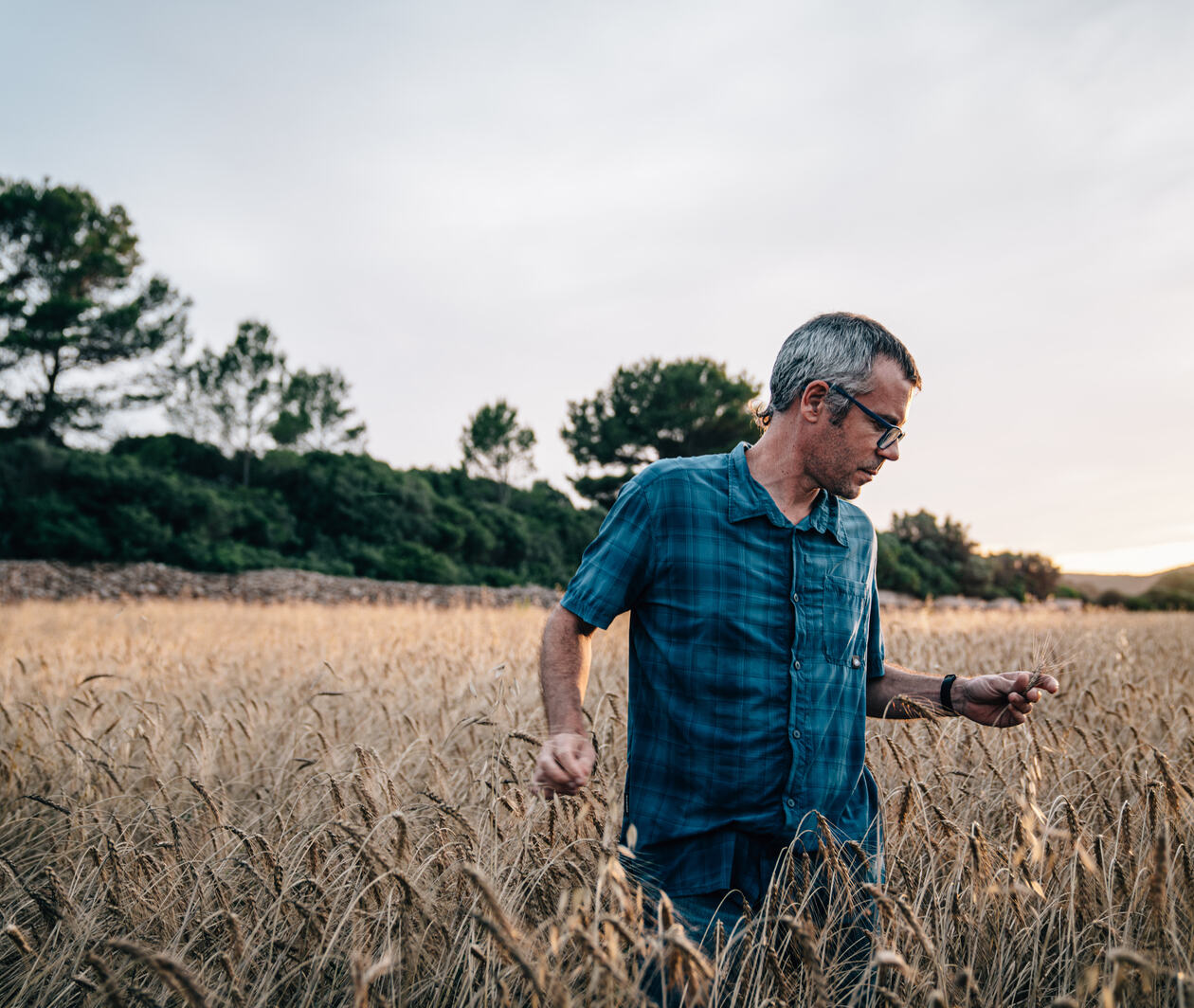Build your knowledge of sustainable farming methods and the skills and policies needed to transition to a regenerative model.

Duration
2 weeksWeekly study
3 hours
The Regenerative Agriculture Revolution
Other courses you might like
This course isn't running right now. We can email you when it starts again, or check out these other courses you might like.
Browse more in Nature & Environment
Discover the inspiring future of sustainable farming
Current mainstream farming methods are resulting in the loss of fertile soil and biodiversity, meaning that the world could run out of topsoil in about 60 years.
On this two-week course from EIT Food, you’ll learn what regenerative agriculture involves, why it’s crucial for the future of farming, and how to implement your own transition to the regenerative model.
Learn the fundamentals and benefits of regenerative agriculture
From soil health and biodiversity to farmer livelihoods, there are many benefits to sustainable and regenerative farming.
This course will guide you through the key principles of regenerative agriculture, the benefits of different farming methods, and how the regenerative model can help to reduce the environmental impact of farm practices.
Explore the policies and designs needed to transition supply chains
Reports from leading organisations state the fundamental importance of transitioning to more regenerative agriculture methods if Europe is to meet its climate change targets, food security needs, and protect our farmland.
You’ll look at the regenerative model and how it can be implemented to reverse rural abandonment by making farms profitable. You’ll also examine the responsibilities of both corporations and consumers, as well as the EU policies that aim to help move the industry towards a sustainable future.
Develop your skills with the experts at EIT Food
With teams on the ground across Europe, EIT Food leads the world’s largest and most dynamic food innovation community.
This course has been developed by a team of experts with hands-on knowledge of regenerative agriculture, making them uniquely positioned to help you develop your understanding of the topic and grow your own strategies for sustainable intensification.
Syllabus
Week 1
Uncover the story of regenerative agriculture
Welcome to the course
This first activity introduces the course topic and the educators.
Farming better
This activity explores the need for a shift from traditional to regenerative agriculture.
Soil, climate and plant as a set
This activity focuses on the relationship between soil, plant and climate.
Summary
Week 1 wrap-up.
Week 2
Farming for the future
Introduction to week 2
This activity introduces the second and final week of the course.
Animals as key-player in the agroecosystem
This activity focuses on animal health and welfare.
Holistic management
This activity focuses on the use of natural resources and how farms are designed to support regenerative agricultural practices.
Transitioning supply chains
This activity explores how stakeholders are transitionning to regenerative agriculture practices, and how policies support it.
Course summary
This is the final activity of the course, wrapping up all that we have learned.
When would you like to start?
Date to be announced
Add to Wishlist to be emailed when new dates are announced
Learning on this course
On every step of the course you can meet other learners, share your ideas and join in with active discussions in the comments.
What will you achieve?
By the end of the course, you‘ll be able to...
- Explain the concepts of regenerative agriculture and sustainable intensification and the impact these can have on farming systems
- Explore how regenerative agriculture can help reducing environmental impacts of farm practices
- Identify which skills are necessary to implement new data-driven regenerative farming techniques
- Reflect on the challenges faced by farmers and how regenerative agriculture can help them to provide a secure and sustainable food supply for a growing population
- Assess soil health
- Develop a regenerative action plan for your farm (or a hypothetical farm)
Who is the course for?
This course is designed for farmers ready to join the Regenerative Agriculture Revolution.
It may also be of interest to anyone committed to improving agricultural systems, especially stakeholders working in the agricultural industry, and anyone interested in better understanding sustainable farming.
If you’re looking to expand your knowledge on this topic, you might also find of interest the following EIT Food courses on food system, agriculture, and sustainability:
Who will you learn with?
Agricultural Project Manager at EIT Food. Helping farmers make an alternative choice for them and the generations to come. I'm also a vine-grower in the Douro valley.
Project Manager at EIT Food, in charge of Regenerative Agriculture Programme in CEE region. Helping farmers make an alternative choice for them and the generations to come. I co-run a family farm.
Learning on FutureLearn
Your learning, your rules
- Courses are split into weeks, activities, and steps to help you keep track of your learning
- Learn through a mix of bite-sized videos, long- and short-form articles, audio, and practical activities
- Stay motivated by using the Progress page to keep track of your step completion and assessment scores
Join a global classroom
- Experience the power of social learning, and get inspired by an international network of learners
- Share ideas with your peers and course educators on every step of the course
- Join the conversation by reading, @ing, liking, bookmarking, and replying to comments from others
Map your progress
- As you work through the course, use notifications and the Progress page to guide your learning
- Whenever you’re ready, mark each step as complete, you’re in control
- Complete 90% of course steps and all of the assessments to earn your certificate
Want to know more about learning on FutureLearn? Using FutureLearn

